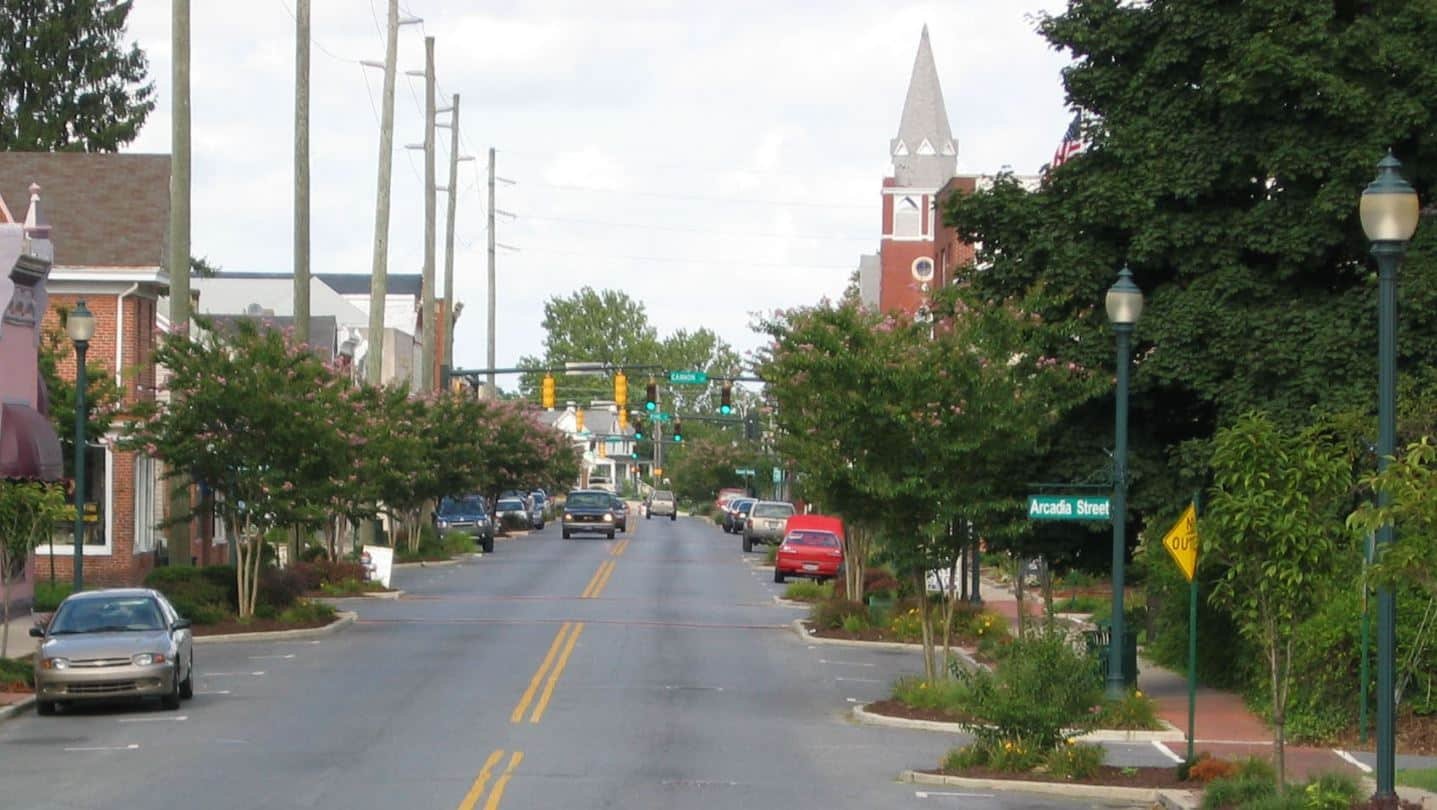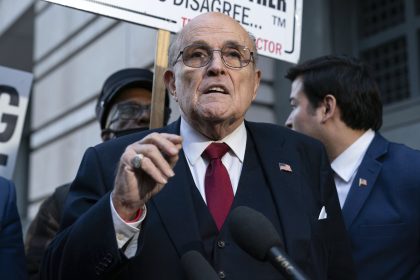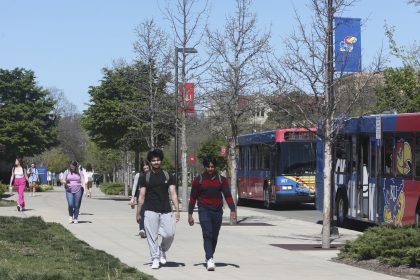Will Businesses Get the Right to Vote in Seaford, Delaware?

SEAFORD, Del. — To most, Seaford, Delaware, would seem the kind of community for which the word “idyllic” was coined.
A city of just under 7,000 residents, Seaford’s defining feature is its thriving historic business district nestled along the Nanticoke River, not too far from the Delaware/Maryland border.
It’s the kind of place where summer thoughts usually tend toward little league and “Riverfest,” the annual fair featuring food, concerts, a custom car show and family “rafting” on inflatable floats — activities that seem to draw just about everyone in town.
But a proposed city charter change has brought a bit of unexpected controversy to this community of tree-lined streets and brick sidewalks: City officials want to give municipal voting rights to nonresident owners of limited liability companies, corporations and trusts.
“It’s interesting that this is making any news at all,” Seaford Mayor David Genshaw told The Well News earlier this week.
“I mean, we really considered this a non-issue,” said the mayor, who supports the proposal, which will likely be voted on by the state Legislature next week.
“Other towns have already passed similar legislation through the state Legislature. It’s permitted by Delaware state law. Frankly, I’ve been surprised by all of the attention our proposal has gotten,” Genshaw said.
With that, the soft-spoken public official paused a moment to consider his words.
“But that’s just the way it goes sometimes,” he said with a hint of resignation in his voice. “No good deed goes unpunished.”
To begin to understand the controversy — and why the mayor or anyone else would be surprised by it — one first has to know this about Delaware: It is one of just three states, the others being Connecticut and New Mexico, that allow nonresidents to vote in municipal or town elections.
Nine other states allow nonresidents to vote in other limited cases.
In Delaware’s case, this electoral distinction was the result of a change in the state code 60 years ago that allowed municipalities like Seaford (those with a population of at least 1,000) to create home rule charters, and under those charters, cities and towns are allowed to determine voter eligibility in local elections.
But as enthusiastic as Delaware’s towns and cities have been about extending the right to vote to nonresident property owners, few have taken the additional step of extending the privilege to businesses.
The Seaford city council did just that on April 11, when it voted to amend the city charter to allow nonresident business owners to vote in local elections.
Though a rare move, two of the city’s neighbors — Fenwick Island and Henlopen Acres — have already formally adopted measures like the one Seaford’s city council has proposed.
Another community, Rehoboth Beach, perhaps best known today as the location of President Joe Biden’s vacation home, considered a similar charter change in 2017, but reversed course due to the vocal concerns of many full-time residents.
For Seaford’s amendment to take effect, the new charter needs to garner the support of two-thirds of the members in a vote in the Delaware General Assembly — something considered highly likely given the state’s historic penchant for home rule.
Earlier this month, House Bill 121, the bill granting the change in charter, was voted out of the General Assembly’s administration committee and sent to the chamber for a final vote. The legislative session resumes June 6, and a vote on Seaford’s request could come at any time.
Only then will it be sent to Gov. John Carney’s desk for his signature.
While these last steps seem a foregone conclusion, the proposal has been a matter of controversy since it was first made.
For its critics, the Seaford charter amendment is tantamount — albeit on a much smaller, localized scale — to the U.S. Supreme Court’s 2010 ruling in Citizens United, the case in which a divided court held that corporations and other outside groups can spend unlimited money on elections.
The majority in the 5-4 ruling made no reference to corporate personhood; it said that political speech rights do not depend on the identity of the speaker, which could be a person or an association of people.
For instance, Claire Snyder-Hall, executive director of Common Cause Delaware, a government watchdog group, said in an email to The Well News that the proposal would effectively give wealthy property owners an unfair say in city elections.
Seaford City Councilman James King, who voted against the charter change, also raised the issue of fairness in an email to The Well News.
Calling the proposed new charter “very discriminatory,” King said the proposed change would empower some business owners, while disenfranchising others — namely those who don’t own but lease the properties where their businesses operate.
King is also concerned that the new charter could open the door to potential voter fraud, a sentiment echoed by Snyder-Hall.
They and like-minded critics of the proposal point to Newark, Delaware, where property owners or their agents are allowed to vote in elections involving tax increases.
In 2019, this all went awry when it was revealed a property manager who controlled 31 LLCs, each one owning a property, voted 31 times in the local election — and that it was perfectly legal because of the wording of the law.
The revelation led to a number of changes, including the insertion of a specific statement saying that one person is entitled to only one vote. The Seaford legislation would also allow for one person to cast only one vote.
King also maintains the proposed charter charge is undemocratic, effectively giving corporations a voice in local politics at the expense of the city’s human residents.
“Why should we allow artificial entities to have a greater ‘say’ in our town when there are so many registered voters who do not vote? In my opinion, we should be working to increase residential voter turnout before extending it in this way,” he said.
For his part, Genshaw, who cast the deciding vote in favor of the new charter, said he sees the proposal as anything but discriminatory.
Instead, he said, it gives voice to people who were previously muzzled, but who have invested in the city and play a big role in its development anyway.
“When I first got elected 10 years ago, one of the first questions I was asked was, ‘Can businesses vote in elections?’ And the standard answer back then was, ‘No, people vote for people.’
“Over the years, this kept coming up, in part because corporations and LLCs could already vote on annexations and referendums,” Genshaw said.
“So finally, we decided to take a look at the situation and what we found was that there were business property owners, clearly local, long-term residents of our hometown, who invested money here, but just happened to live just outside city limits and therefore had no voice in most local elections,” the mayor continued.
“These are people who bought properties we desired for them to buy and fix up. They are people who are very involved in the community and community organizations. And they likely have employees that rent property in town and can vote when they can’t, simply because they are set up as a corporation or a business partnership,” Genshaw said.
“And to remedy that, we literally took another town’s charter change and basically copied what had already passed elsewhere,” he said. “That’s why, as I said at the outset, it’s a little surprising that this has gained so much traction and is getting this much attention.
“We were driven, from the start, to simply extend the right to vote to long-term Seafordians who had invested in and been super involved in the community. … I mean, Walmart is not going to participate in a local election. They could, legally, I suppose, once the charter change is made, but the intent from the start is to allow local people to vote who are already participating locally in other ways.”
Genshaw also determinedly went after the idea that opening the vote to corporations and LLCs will somehow foster corruption.
“Look, we’re a small town, so it’s not very difficult to figure out who’s who, but in addition to that, because nonresidents can vote on referendum and annexations, we already have a process in place for vetting people making sure only one person attached to a property votes and that they only vote one time.
“If you have a dozen limited partnerships, you still get just one vote,” the mayor said, adding, “A lot has been written and said about this change that’s sort of misleading. I mean, there are people who believe that when the next election comes around all these companies will walk right in and cast a vote, and that’s just not the case.”
But those assurances do little to mollify charter change opponents like Snyder-Hall of Common Cause Delaware.
She believes empowering companies to vote will dilute the votes of “everyday people” and will skew the outcome of future elections.
But Genshaw insists she’s wrong.
“I don’t think this is going to sway any election one way or the other,” he said. “This is really a sign of respect to those people who have chosen to establish their business as an LLC or a corporation for tax purposes, liability purposes — whatever — and giving them the opportunity to vote. That’s it. And if they choose to vote, they’ve still got to go through a little bit of effort to make that happen.”
He added: “With the turnout in elections across the state and across the country being so horrible, I think we ought to be encouraging local business owners who want to participate in the process.”
For now, all eyes are on the state Legislature.
Snyder-Hall said she believed the bill was being fast-tracked, but said an “uproar” in the body’s Democratic caucus resulted in its being pulled from the House agenda for some “edits” by its sponsor.
“I do not think the bill is dead,” she said. “And I hear there are prominent Democrats in the state Senate that are open to it. We’ll just have to wait and see what happens when the House returns to session on June 6.
“I will say this, however, Common Cause Delaware is going to do everything it can to stop this bill. We are worried, but believe that the bill can still be stopped,” Snyder-Hall said.
Dan can be reached at [email protected] and @DanMcCue
























